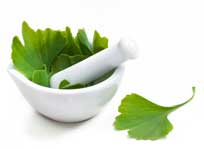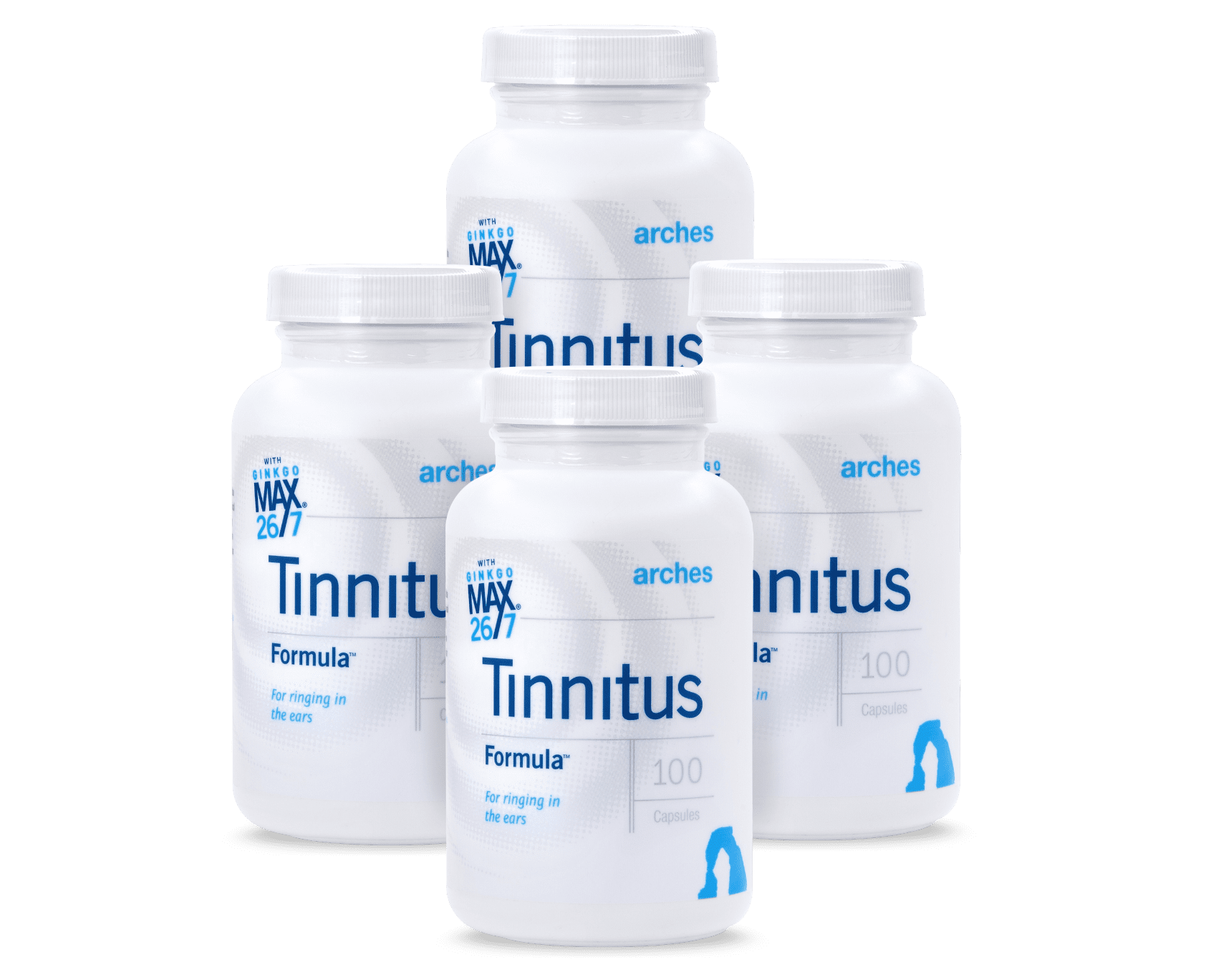By Barry Keate
Barry Keate, has lived with tinnitus over 40 years and has published 150+ research articles on numerous aspects of tinnitus. He is an expert on the condition and a well-known advocate for those with tinnitus.
A very important systematic review of clinical studies on Ginkgo biloba for tinnitus was recently published in a peer-reviewed journal. It included a number of studies, some positive and some negative, and then proceeded to document methodological and other deficiencies in some of the studies. After analyzing and removing the flawed studies from the review, it came to logical conclusions that provide proof positive that the standardized extract of ginkgo known as EGb 761 is effective in reducing tinnitus for the majority of individuals who use it.
Background
 Ginkgo biloba is the most studied herb in use in the world. To date, there have been over 400 clinical studies conducted on ginkgo looking at a variety of medicinal properties and clinical uses, including as a treatment for tinnitus. A National Health Interview Survey found that ginkgo was the seventh most popular natural product used in the United States. (1)
Ginkgo biloba is the most studied herb in use in the world. To date, there have been over 400 clinical studies conducted on ginkgo looking at a variety of medicinal properties and clinical uses, including as a treatment for tinnitus. A National Health Interview Survey found that ginkgo was the seventh most popular natural product used in the United States. (1)
For the past couple of decades there has been an on-going debate regarding the use of ginkgo for tinnitus. Some studies have shown it to be helpful while others have not. It’s very interesting that European researchers all support the use of ginkgo while American researchers primarily weigh in on the negative side; this in spite of the fact that the great majority of clinical studies of ginkgo for tinnitus have been conducted in Europe while not one single study has been conducted in the US.
The German Commission E, considered the world’s foremost authority on herbal therapies, has long recommended ginkgo for the treatment of tinnitus as well as several other conditions such as memory deficits, depression, dizziness and headaches.
Noted German otolaryngologist, Norbert Holstein’s review of 19 clinical studies on ginkgo for the treatment of tinnitus showed “a statistically significant superiority of the treatment with Ginkgo biloba EGb 761 as compared with placebo or reference drugs.”
Skeptical American researchers prefer to quote a large, double blind, placebo-controlled study by Drew and Davies, commonly referred to as the “Birmingham” study, after Birmingham, England where the study was conducted, that showed no efficacy over placebo for ginkgo biloba. This single study has been promoted by those skeptics in the US and the UK as a final, decisive evidence against ginkgo for treating tinnitus. (2)
Now this new review, published in Neuropsychiatric Disease and Treatment, states, “There is evidence of efficacy for the standardized extract, EGB 761 (Dr. Willmar Schwabe GmbH & Co.) in the treatment of tinnitus from three trials in patients in whom tinnitus was the primary complaint. Supportive evidence comes from a further five trials in patients with age-associated cognitive impairment or dementia in whom tinnitus was present as a concomitant symptom.” (3)
 Editor’s Note: Arches Tinnitus Formula uses a pharmaceutical-grade Ginkgo biloba extract that meets or exceeds all requirements of the ginkgo discussed here, EGb 761. A more detailed discussion of our specially formulated ginkgo extract can be seen in our article, Arches Tinnitus Formula: the Science Behind the Product.
Editor’s Note: Arches Tinnitus Formula uses a pharmaceutical-grade Ginkgo biloba extract that meets or exceeds all requirements of the ginkgo discussed here, EGb 761. A more detailed discussion of our specially formulated ginkgo extract can be seen in our article, Arches Tinnitus Formula: the Science Behind the Product.
Interested persons can read the entire study . For those who would prefer a synopsis, I will provide one here.
The Review
Alexander von Boetticher, MD Is an ENT physician and researcher practicing in Lueneburg, Germany. He set out to assess the methodological quality of available randomized controlled trials of Ginkgo biloba extract for tinnitus and provide a synopsis of the evidence of efficacy of the trials.
He set the following criteria for studies that were eligible for inclusion in the review:
1 – Use of an identifiable, standardized extract of Ginkgo biloba, the composition of which is described adequately,
2 – Dosing and duration of treatment appropriate for the type of tinnitus,
3 – Enrollment of inpatients or outpatients suffering from tinnitus as a primary or concomitant (attendant) complaint,
4 – No major methodological shortcomings or bias,
5 – Publication in English, French, German, Spanish or Italian language.
Trials of interest were identified by searching the National Institutes of Health PubMed database using the search terms “Ginkgo” and “tinnitus,” by hand searching references listed in such identified review and trial reports, and by requesting information on randomized controlled trials of any ginkgo product on tinnitus from a manufacturer.
Three studies of patients with tinnitus as a primary complaint fulfilled the inclusion criteria and were included in the review. Five studies on patients suffering from dementia or age-associated cognitive decline with tinnitus as a concomitant complaint were also included. The standardize extract EGb 761 was used in all studies that fulfilled all quality criteria for inclusion.
Here is a very interesting point: three randomized controlled trials were excluded from the review due to major shortcomings in study conduct or reporting. One of these was the “Birmingham” study. Here is why they were excluded:
1 – One study reported by Holgers et al, treated 80 patients with chronic tinnitus with 29.2 mg per day for two weeks. The daily dose of 29.2 mg is extremely low compared with the daily doses of 120 – 240 mg of the standardized extract. A treatment period of 2 weeks is too short for chronic tinnitus.
2 – Rejali et al reported a randomized, placebo-controlled, double blind trial involving 66 outpatients with tinnitus who were treated with 120 mg per day of a ginkgo preparation or placebo for 12 weeks. Neither the type of ginkgo used is described nor is any information provided about composition or standardization. Additionally, after the treatment 51% of patients treated with placebo and 21% of those treated with ginkgo were unable to attend the final visit. Illness was the reason given for 27% and 12% of placebo treated and ginkgo treated respectively. If illness was severe enough to prevent patients from clinic visits it would easily interfere with the subjective self-assessment of tinnitus handicap and health status.
3 – The “Birmingham” study was a randomized, placebo-controlled, double blind study of 1243 patients with chronic tinnitus. Patients were enrolled and treated with 150 mg per day Ginkgo biloba for 12 weeks. Dr. Boetticher states, “This study did not meet minimal standards of Good Clinical Practice. No personal contact between physicians and patients was required; as a consequence, the actual existence and identity of the patients could not be verified, nor was any medical or audiological examination performed. . . .Although patients were paired and then allocated treatment codes, 155 patients who received study medication were unpaired at the end of the study and only 363 pairs (726 patients) were accounted for in the primary analysis.”
So, at the end of a very unscientific study, only 58% of the patients were even accounted for in the analysis. This kind of sloppy accounting is the death knell for statistical analysis. This study should never have been published in the first place!
Discussion
Dr. von Boetticher describes several reviews of ginkgo for tinnitus that uncritically lumped together studies of different Ginkgo biloba preparations irrespective of their quality and dosage. He singles out Hilton and Stewart who included three clinical trials with three different products in the Cochrane Review. Although they contend that they applied rigorous methodological criteria for study selection, they accepted two seriously flawed trials and concluded there was no statistical proof ginkgo is an effective treatment.
On the contrary, Holstein’s review of 19 clinical studies (discussed above) only included studies with Ginkgo biloba extract EGb 761. He found evidence of efficacy for this standardized extract from randomized, placebo-controlled trials, supported by findings from reference controlled and uncontrolled trials in a more true-to-life setting. (4)
Dr. von Boetticher concludes, “Of note, all trials using this extract (EGb 761) consistently demonstrate its superiority over placebo. The average treatment effects may be limited in magnitude and not all patients seem to respond to the drug, yet given the annoying and often disabling nature of tinnitus, even moderate improvements may have a considerable impact on patient quality of life. It is the ear, nose and throat specialist’s responsibility to offer patients counseling, supportive care, and the best alternatives in treatments available for each individual patient. Considering the limited data from methodologically sound, well controlled trials of other therapeutic options, the robust and consistent data available for tinnitus treatment with EGb 761 should be appreciated.”
References
1 – Barnes PM, Bloom B, Nahin RL. Complementary and alternative medicine use among adults and children: United States, 2007. Natl Health Stat Report 2008; :1.
2 – Drew S, Davies E. Effectiveness of Ginkgo biloba in treating tinnitus: double blind, placebo-controlled trial. BMJ. 2001;322(7278):1-6.
3 – Alexander von Boetticher, Ginkgo biloba extract in the treatment of tinnitus: a systematic review. Neuropsychiatr Dis Treat. 2011; 7: 441-447.
4 – Holstein N. Ginkgo biloba special extract EGb 761 in the treatment of tinnitus. An overview of the results of clinical trials. Fortschr Med Orig. 2000;118(4):157-164. German.
Get Free Shipping!
Order now and get free shipping on either the Tinnitus Starter Kit or Combo Pack. Try the doctor recommended products with clinically proven ingredients for tinnitus. No coupon code required.

